federal aviation administration
Latest
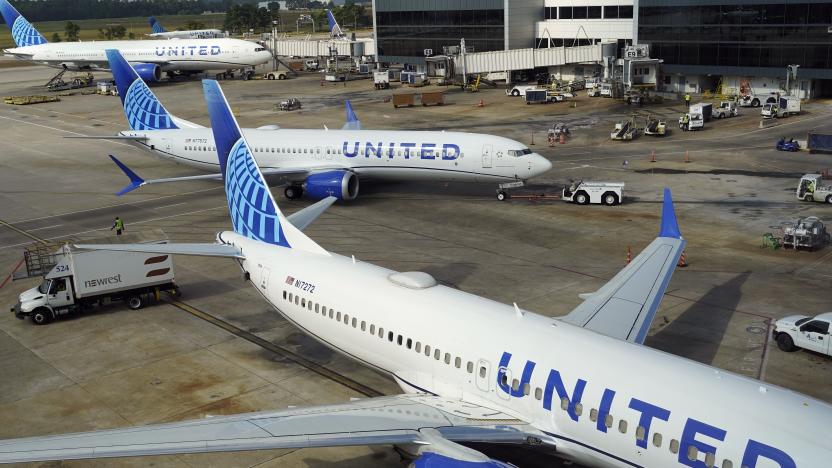
United Airlines grounded flights for an hour after a bad software update
United Airlines briefly grounded all flights in the US due to a "computer issue." The cause of the problem is not yet clear.
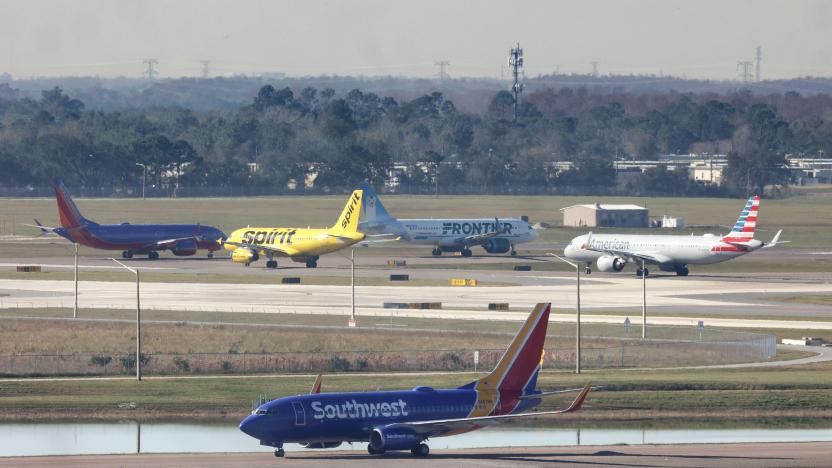
FAA's NOTAM computer outage affected military flights
According to a new report from The Washington Post, issues also started popping up in tools used by US military pilots after FAA contractors triggered the database failure that delayed 11,000 flights.
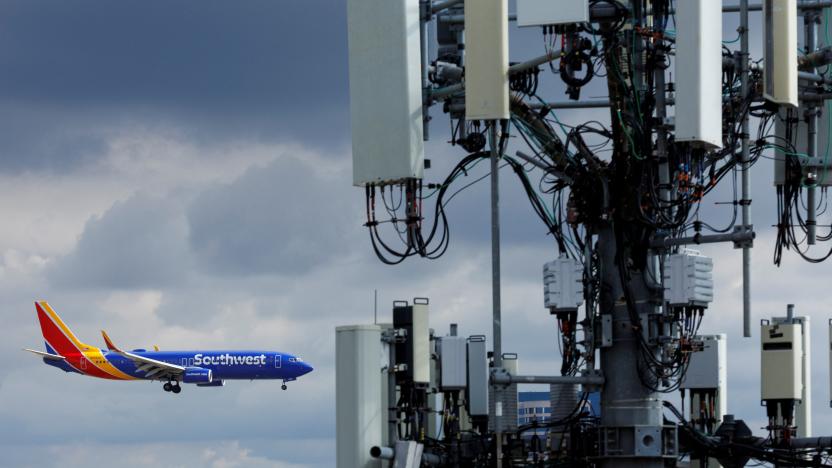
AT&T and Verizon give FAA another year to remedy C-band 5G interference issues
Airlines are retrofitting altimeters with radio frequency filters.
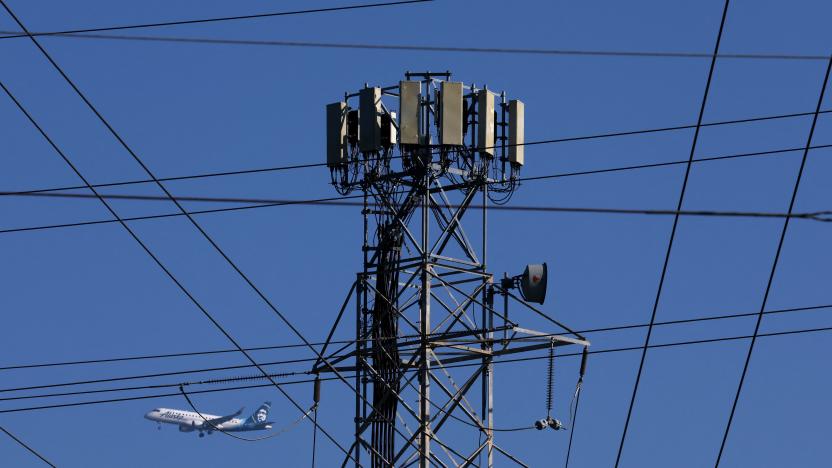
The FAA has reached a deal with Verizon and AT&T for C-Band 5G at airports
The agency said providers will be able to 'safely turn on more towers as they deploy new 5G service in major markets.'
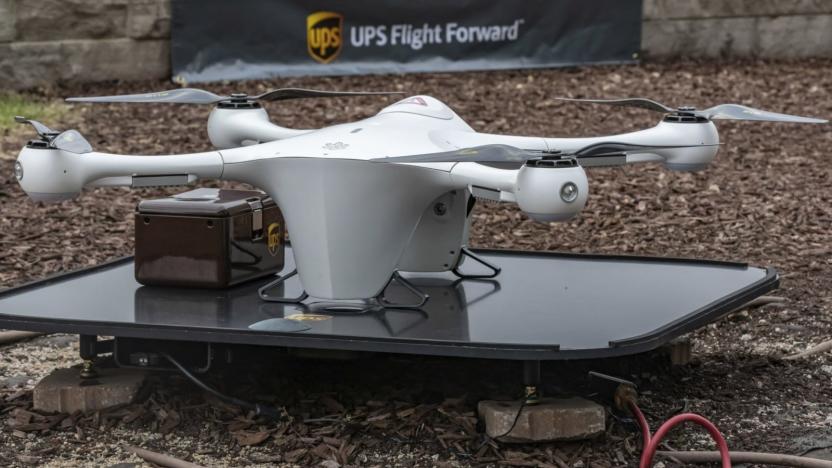
UPS delivery drones are on the way after FAA certification
UPS might soon be dropping off packages across the US by drone. The Federal Aviation Administration granted the UPS Flight Forward subsidiary air carrier and operator certification, allowing it to use drones for commercial deliveries.

Cellphone interference still poses a risk aboard some Boeing jets
Even switching your phone to airplane mode won't keep it from being a risk on some Boeing jets. A 2014 FAA study revealed that some cockpit screens on Boeing 737 and 777 jets are vulnerable to interference from WiFi, cell phone signals or even weather radar. Bloomberg reported today that while many have been replaced, some jets still contain the outdated models built by Honeywell International, Inc.
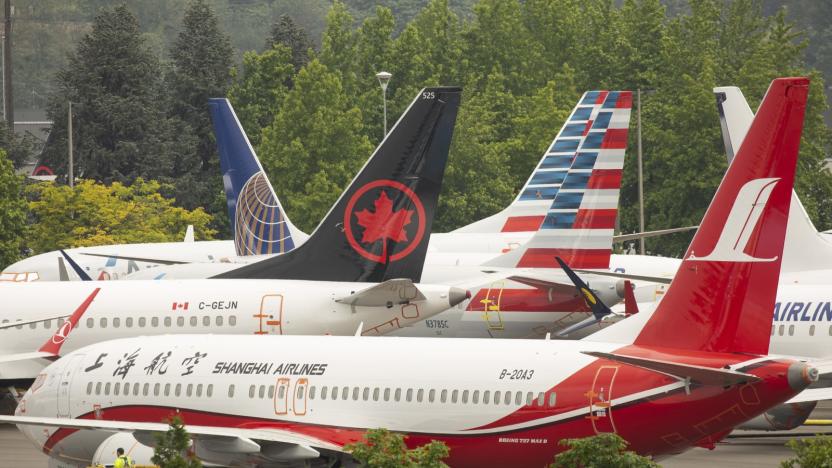
FAA discovers another potential risk with the Boeing 737 Max
The Federal Aviation Administration has discovered another potential risk with the grounded 737 Max that Boeing has to resolve. The issue emerged during a simulator test last week, according to Reuters. As such, a certification test flight isn't expected to take place until July 8th at the earliest, further delaying the plane's return to service.
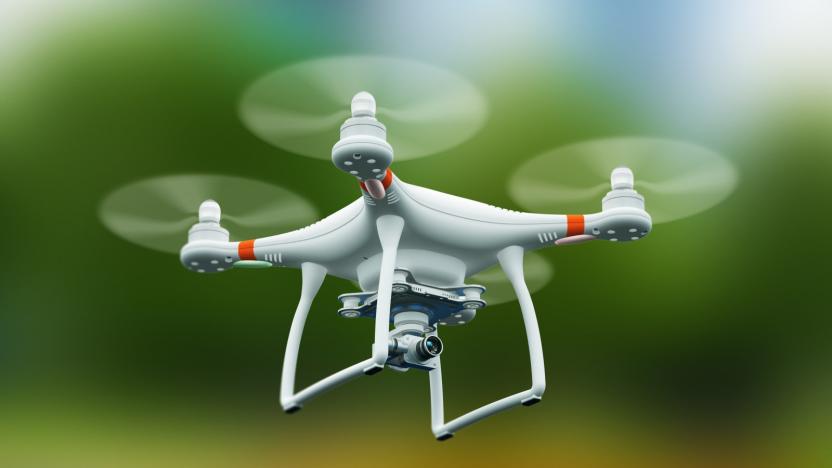
Senators urge FAA to complete remote drone identification rules
There's no question that drone sightings can be disruptive. In December, a drone spotted at Gatwick Airport in London led to the grounding and diversion of hundreds of flights, and similar disruptions have happened at Dubai International Airport and Newark Liberty International Airport. With those incidents in mind -- as well as a flyover of Fenway Park -- Senators Edward Markey (D-Mass.) and John Thune (R-SD) are calling on the Federal Aviation Admission (FAA) to complete guidelines on remote drone identification.
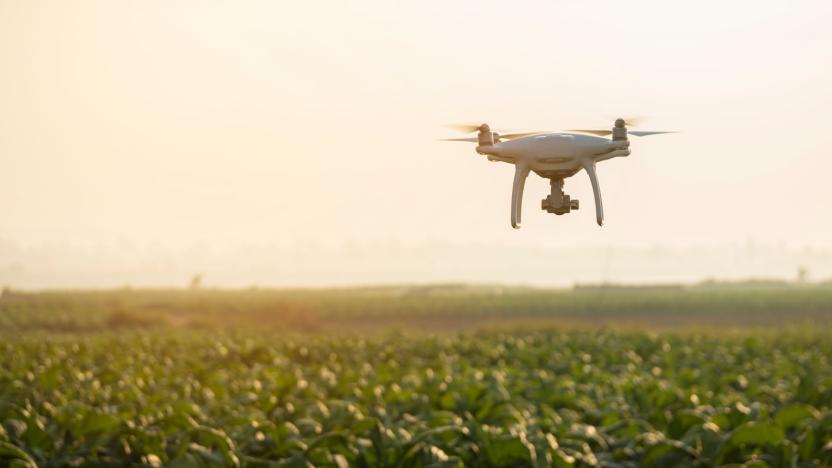
FAA will require drones to display registration numbers externally
Drone owners will soon need to display their device's registration numbers on the outside of the craft, the Federal Aviation Administration has declared. The agency, which last month proposed looser restrictions on drone night flights, posted the rule on a Federal Register preview site. The directive is set to take effect on February 23rd -- you'll need to mark the ID number on your drone's body by then.
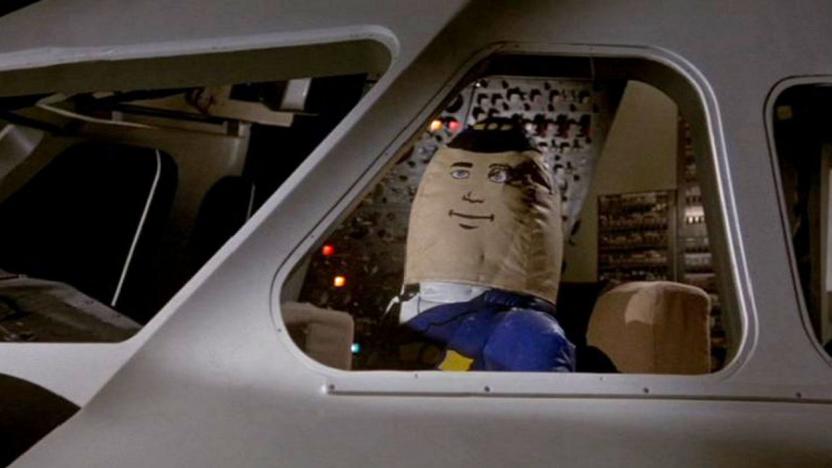
The military’s quest for autonomous drones could also yield sky taxis
Self driving cars are only the beginning. Within a couple decades, most anything with wheels, wings, or rotors will be able to operate, not just on its own, but in concert with hundreds or thousands of similarly self-guided vehicles around it. This won't just revolutionize how current transportation systems operate, it will open up entirely new roles for unmanned vehicles -- especially aircraft.
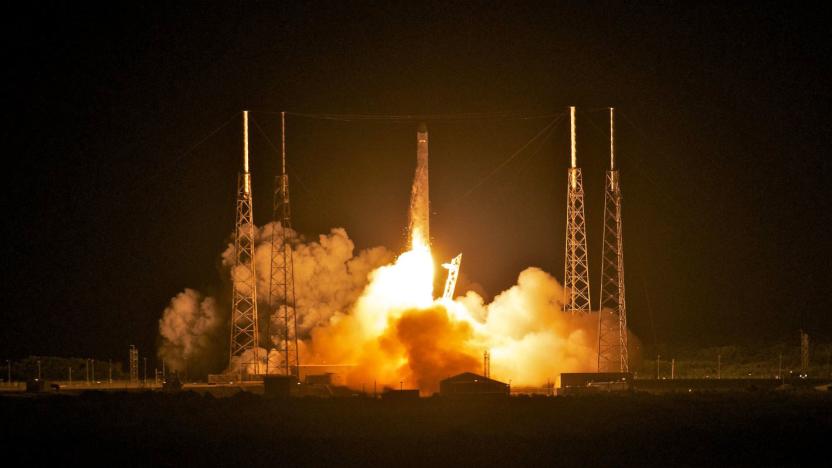
The FAA has once again approved SpaceX for rocket launches
SpaceX is finally, officially, ready to get back into the space launch game after losing one of its Falcon 9 rockets during a massive launch failure last September, which destroyed both the rocket itself and its $50 million payload. On Friday, the Federal Aviation Administration reauthorized the company's Commercial Space Transportation License.
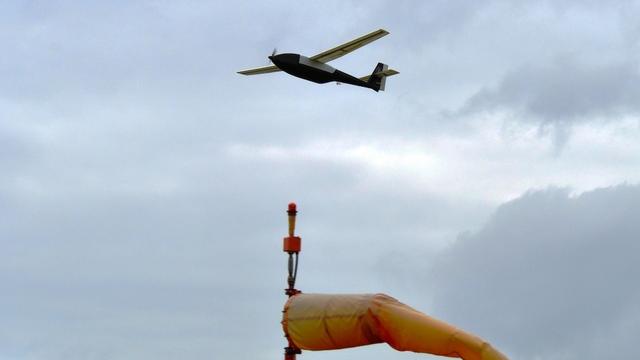
FAA's next traffic control system may not be fit for drones
Much has changed since the Federal Aviation Administration decided to start testing drones in the US for the first time. Part of that is due to the growing interest in UAVs over recent months, not only from hobbyists, but also from major technology companies including Amazon, Facebook and Google. There's certainly potential for a great deal of congestion in the skies in the near future, but the FAA doesn't believe its upcoming NextGen control system is ready to handle all the forecasted traffic from commercial drones -- not yet, at least. "We didn't understand the magnitude to which (drones) would be an oncoming tidal wave, something that must be dealt with, and quickly," FAA Assistant Administrator Ed Bolton told the Associated Press.

US Federal Aviation Administration to re-examine in-flight electronics use
Chances are good that you'll still need to put your electronic devices away during takeoff and landing, but the U.S. Federal Aviation Administration (FAA) is forming a combined government-industry group to determine when your computer, smartphone and tablet can be safely used. The major reason you're asked to power down those devices during portions of the flight is to prevent interference with communications and navigation devices during the most crucial phases. The group the FAA is forming will include participants from pilot, flight attendant, and passenger groups, as well as airlines, mobile companies, and aviation manufacturers. The group will be formed this fall, meet for a six-month period, and then report back to the FAA on the testing methods used by airlines to determine safety and possible standards for use of devices in flight. They will not be looking at allowing voice calls on cellphones during flights. You, the flying public, have a chance to put in your word with the FAA starting today. A Request for Comments (RFC) should be published in the Federal Register today, kicking off a 60-day period during which the public is requested to make comments on various issues. The cellular industry's industry group, CTIA, has one opinion -- "The use of portable electronic devices while on a flight -- the whole flight -- should absolutely be allowed," said CTIA executive Jot Carpenter. Whether the flying public will tolerate loud cell phone calls during flights is another matter...

FAA to expand iPad usage, create app store
According to a report on aviation website AVweb, the Federal Aviation Administration plans to expand the use of the iPad by its employees. By 2014, employees will be given the choice to replace their laptops with an iPad and possibly other Android tablets. The FAA has found that the iPad improved efficiency and lowered costs, especially among employees like mechanics who consult technical repair manuals on the tablet and lawyers who use the iPad to access legal files online. The FAA also has plans to create an app store with apps that meet the needs of its employees. Hat tip to Marty for sending this in!

FAA to take 'fresh look' at gadget restrictions on flights
The only thing worse than the Terrible 10,000 Feet is the underlying sense that it's all so unnecessary. Why should using an iPad, Kindle or bag-holding alarm clock be banned during take-off and landing, even with all wireless comms switched off? Nick Bilton from the New York Times has been hounding the Federal Aviation Administration over this issue for a while, but he's suddenly received a reply other than "Just turn it off, sir." A senior official told him that the agency as decided to take a "fresh look" at the rules, not for cell phones, but for the myriad of other gadgets that can make a flight so much more peaceful and productive. Currently, airlines complain that they have to test each model of device individually, on every single plane in the fleet, and with a separate empty flight used for each test, before they're allowed to relax the rules for that model. That's why personal electronic devices remain so closely restricted, but also why there's so much room for a smarter solution -- even if there are still reams of red-tape to overcome before anything changes.

Congress passes bill giving the FAA $11 billion to get off radar, onto GPS
It took awhile, and the price tag is quite a bit steeper than previously thought (shocking, right?), but the FAA is finally getting the funding it needs to bring the nation's air traffic control system up to date. Congress just passed the bill to make it happen, allotting $11 billion to the FAA to upgrade the nation's 35 busiest airports air traffic controls from radar to GPS. The deadline for the conversion is June 2015, and when complete, it'll allow for more precise positioning of aircraft -- GPS pings for the planes' locations every second, while radar updates their locations every 6 to 12 seconds. With such technology enabled, airplanes will be able to take-off and land more closely together while utilizing steeper descents than is currently possible to conserve fuel. So, now that we've got the new traffic control system to improve airline punctuality, we just need the FAA and the FCC to team up and eliminate the "Terrible 10,000 feet" and flying might actually be fun.

Reports: American Airlines wins FAA approval for in-cockpit iPads, will launch Friday
If you fly as an American Airlines premium passenger, you'll get to play with a Galaxy Tab. If you actually fly the plane, though, you'll have to make do with an iPad. According to ZDNet, the carrier has already won FAA approval to use iPads "as electronic chart and digital flight manual readers," making it the world's first airline to be totally tablet friendly. A source close to the situation tells ZDNet that AA "will begin iPad operations on B-777 aircraft" before expanding to other planes, and that both first and second generation devices have been cleared for cockpit use. An AA pilot, meanwhile, tells TechCrunch that the company's tablets will feature JeppTC (a flight chart app available in the App Store), and that all onboard slates will be required to fly with an extra battery. The program, slated to kick off this Friday, could also offer substantial savings in paper and fuel costs. According to Seattle Pi's estimates, a single iPad would replace some 35 pounds of paper per year, translating to approximately $1.2 million in saved fuel costs. Insiders say United and Delta are pursuing similar initiatives, with the latter reportedly looking for an Android-specific solution, though at the moment, only American Airlines has won the FAA's seal of approval.

iPad gets approval from FAA to replace paper flight charts and maps
The Federal Aviation Administration is moving with the times, it would seem, as it has just granted the first approval for the use of iPads instead of paper charts for informing airline pilots while on duty. There are already a number of EFB (electronic flight bag) devices in use, however the iPad is by far the cheapest and most portable one that's been validated yet. Executive Jet Management, a charter flight operator, went through three months of testing with the iPad, wherein it was used by 55 pilots on 250 flights, in order to obtain its FAA license to rely exclusively on the Apple tablet for its in-flight mapping data. Other airlines will have to go through the same process in order to dump their big stacks of paper charts for a slinky slate, but the important thing is that the precedent has been set. As to redundancies in case of failure or a software crash, the likeliest scenario is that pilots will carry a spare iPad with them, though there wasn't even a single (software) crash during the trial period -- which also included rapid decompression and electronic interference testing. So there you have it, the iPad's found itself a grown-up job just in time to retire from its throne as consumer sales leader. [Thanks, Andrew]

GPS-based air traffic control system to go live by 2020
If you've ever watched an investigative journalism show that exposes things you didn't know you had to worry about, there's a good chance you've seen footage of the archaic green-screens in use at airport towers across the country paired with shocking headlines like "Hidden Airport Menace" or "Glidepath to Danger." Plans to replace that tech are finally in motion, with the FAA indicating its new air traffic control system will go into effect by 2020, possibly as early as 2015. This system requires that any aircraft flying within commercial airspace must have a GPS-equipped navigation system -- and we don't mean a TomTom stuck on the windshield. These systems will cost between $5,000 and $10,000 for small planes and are able to beam information to ground control stations that will no longer have to rely exclusively on radar. The plan could cost the FAA alone roughly $4 billion, giving bored local news personalities something else to sensationalize.

FAA computer glitches causing significant flight delays
It's not clear what the exact problem is, but every major airport in the country is currently experiencing flight delays because of an FAA computer problem at a facility south of Atlanta. All that's being said is that the system that processes flight plans is having troubles, but that all flights currently in the air are fine and should land safely. Given that a single FAA computer failure has caused over 17,000 passengers to be stranded in the past, we're not too optimistic that these delays won't get worse and worse -- but then, nothing about air travel really inspires optimism lately, does it?Update: All better now. Too bad air travel is still generally a dismal nightmare.











